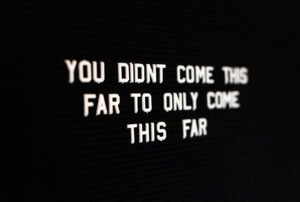
This is the first of what will be a regular biweekly column where I will take a (virtual) spin around the economy. In this column, I look forward to highlighting emerging community-based democratic economic practices, while also demystifying mainstream economic practices.—Steve Dubb, Senior Editor
When it comes to the economy, there are so many myths to bust. Yep, finding that perfectly competitive market your Econ 1 class taught you about is as likely as finding that pot of gold at the end of the rainbow. (But if you do find that pot of gold, please send some donations our way!)
These are, to be sure, crazy times, so I have no doubt that there will be plenty of material. I fully expect this column to evolve over time, and I would greatly welcome your feedback.
In the interest of full disclosure, there are a couple of basic assumptions behind this column. One is that the economy—the production, distribution, and allocation of resources in our world—matters to all of us, regardless of our position within social movements or the nonprofit sector. Put another way, the worst thing one can do is to leave economics to the economists.
So much nonprofit work involves compensating for what is known in economics as “market failure.” But if the economy changes, then where those “failures” occur will also change. Whether you work in social services, education, the arts, or community development, understanding economic trends—and cutting through the fog of economic news—is important. And of course, if you can actually affect those trends, then you might be able to dramatically increase your effectiveness, since a healthier economy can radically reduce social problems.
A second assumption is impermanence. In other words, the idea that the economy has always been as it is now, or will stay as it is now, is deeply mistaken. In fact, practices we assume have always been true have not been, and at least some things that we think of as marginal today are, in fact, likely to become central in the future. Even our overall system of capitalism a) was not always with us, b) has changed remarkably in just past few decades, and c) will surely not stay with us as we know it either. This last point is especially relevant when we consider the very real constraints that a changing climate and depleted material resources are likely to bring us.
Then, too, there are the many ideas that we take as given that are actually quite new. For example, the notion that corporations “maximize shareholder value” would have been quite foreign to corporate leaders in 1950. Just last month, Rep. Alexandria Ocasio-Cortez was widely reprimanded for her “extreme” position that a 70-percent marginal tax rate be assessed on any portion of annual income that was above $10 million—until folks recalled that between 1945 and 1981, the top marginal tax rate was 70 percent or higher, and the country prospered anyway.
To start off, I thought I would provide a miniature guide to some of the work that I have been involved in at NPQ. Last summer, I curated a series of articles on rebuilding the economy. And now, we are in the midst of a 7-part webinar series that are exploring those topics in more depth. Our fifth in the series, which will look at how to leverage large place-based institutions such as universities and hospitals for community benefit, will take place Thursday, March 14th, from 2:00 to 3:30 pm Eastern Time. Hope you can join us!
Sign up for our free newsletters
Subscribe to NPQ's newsletters to have our top stories delivered directly to your inbox.
By signing up, you agree to our privacy policy and terms of use, and to receive messages from NPQ and our partners.
Lastly, here are some links to past articles and webinars. Please feel encouraged to review these. You can bet we will be spinning out these themes in the Remix in the weeks and months to come.
Webinar Series Intro
Remaking the Economy: A Guide to Nonprofit Roles and Tools (Gar Alperovitz, Edgar Villanueva, Malik Kenyatta Yakini, Deborah Frieze)
Background articles: Rebuilding a More Equitable Economy: An NPQ Acceleration Series [set of five articles]
Webinar: Community Ownership of Land
Remaking the Economy: Who Will Own the Land? (Nick Tilsen, Tamara Jones, Diane Linn, Neil Thapar, Gregory Jackson)
Background article: “Ownership as Social Relation: Nonprofit Strategies to Build Community Wealth through Land”
Webinar: Community Ownership of Business
Remaking the Economy: Who Will Profit? (Ed Whitfield, Mike Curtin, Melissa Hoover, Tómas Durán)
Background article: “Can Employee Ownership Hold Back a Tsunami of Small Business Closures?”
Webinar: Community Control of Finance
Remaking the Economy: Who Will Control Capital? (Cliff Rosenthal, Ignacio Esteban, Rodney Foxworth, Shiranthi Goonathilaka)
Background article: “A National Worker Co-op Financing Network Emerges”
Fill in your information below to make sure you receive all of Steve Dubb’s upcoming newsletters in his new biweekly column:













